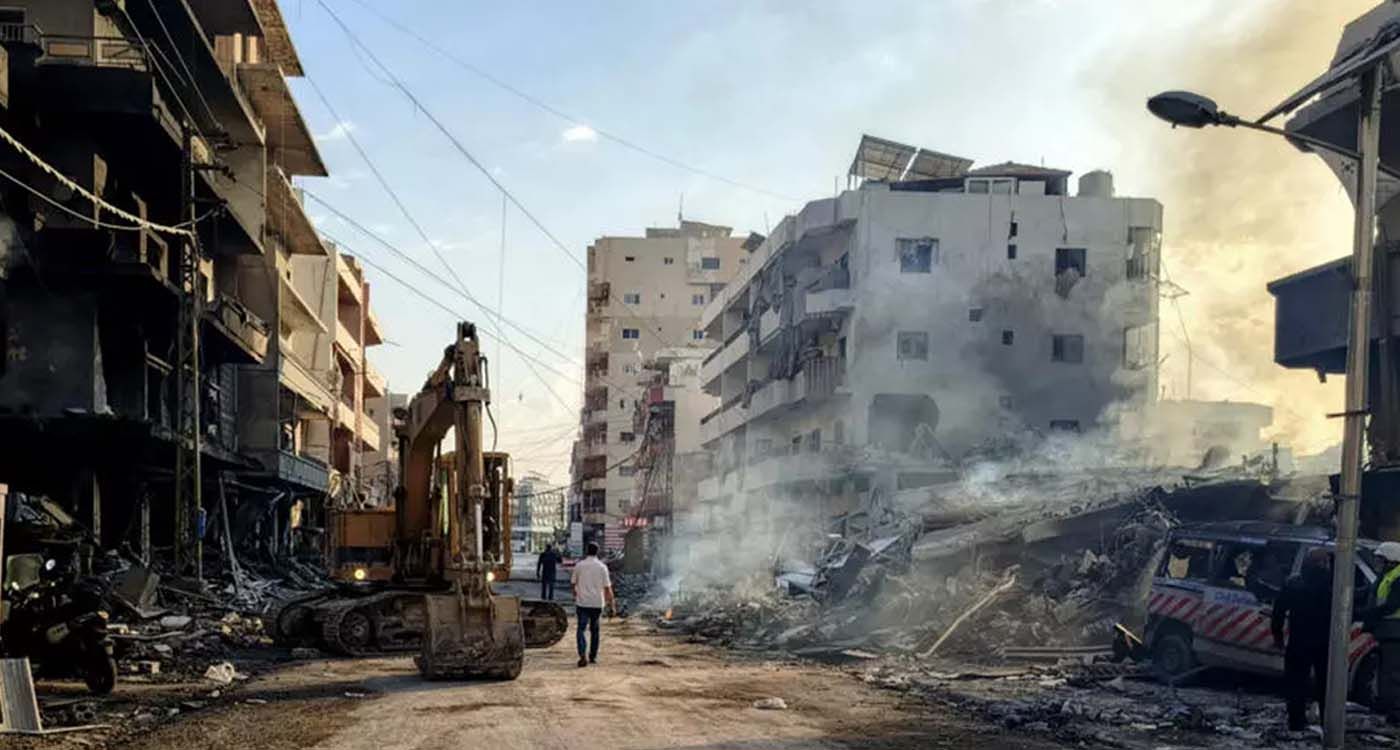
Accountability is seldom found in Lebanese political life, and this is largely understandable. The societal dynamics that shape Lebanon’s social fabric—specifically the entrenched communal, regional, familial, tribal, feudal and partisan loyalties—have consistently influenced the daily lives of its people. Consequently, it is extremely uncommon in Lebanon for the public opinion to hold a leader or a political party accountable for their failures, especially when their actions lead to dire consequences across multiple sectors and levels. However, when these consequences become intolerable, addressing accountability becomes essential to pave the way for a sustainable future. This is especially relevant in the current situation regarding Hezbollah.
The initiative undertaken on October 8, 2023 by the Iranian-backed party to re-engage the southern Lebanon front, following directives from Walih el-Faqih Ali Khamenei—an insight notably highlighted by President Emmanuel Macron—has resulted in catastrophic repercussions that cannot be overlooked or downplayed in the aftermath of the war. For more than a year, the Lebanese population has endured severe hardships across various dimensions, a scale of suffering not witnessed since the Great Famine of the early twentieth century. The historical responsibility for the debacle that has engulfed Lebanon is evident to all; the French President explicitly condemned the Iranian regime for compelling Hezbollah to reopen the southern front “for its own protection,” as he pointed out.
The military adventure initiated on October 8, 2023 is all the more reprehensible and reckless (in every sense of the word) because the mullahs in Tehran—particularly the radical faction of the regime—and the Hezbollah leadership were undoubtedly aware that Israeli Prime Minister Benjamin Netanyahu is no pushover. They surely understood that the Israeli Air Force possesses total and unchallenged dominance over the skies throughout the Middle East, reaching as far as Iran.
The two leaderships of the Islamic Republic and its steadfast Lebanese ally could not have been oblivious to a harsh reality: a significant technological gap exists between them and the Israeli State, which wields unmatched military might in the region. More importantly, they were fully aware that no shelters had been constructed to protect the civilian population—while countless underground tunnels for militants exist, there is not a single refuge for civilians. Furthermore, there was no robust infrastructure in place to accommodate potential displaced persons. Yet, these considerations seem to hold little weight in the geostrategic calculations and ambitions of the mullahs' regime, which seemingly shows no qualms about pursuing its agenda at the expense of the last Lebanese citizen and the last Shia.
Lebanon is currently bearing the consequences of the impending failure of the Khomeinist project, which has proven unable—and indeed, due to its sectarian dogmatism, fundamentally incapable—of adapting to the pluralism and complexities of the societies surrounding it, both within Lebanon and the broader region. In this particular context, it is essential to draw a crucial distinction: we are witnessing the collapse of a specific project, not of an entire community. While the ideology and foundational charter of Hezbollah, based on wilayat el-faqih, are fundamentally at odds with Lebanon's unique characteristics and pluralistic fabric, this does not justify penalizing the free Shia voices for the misguided actions and reckless adventures of the radical faction directed by the Islamic Revolutionary Guards.
Various intellectual currents within the Shia community—especially represented by figures like Mohammed Mehdi Chamseddine, Moussa Sadr, Mohammed Hussein Fadlallah, Hani Fahs and other liberal leaders—have long challenged the foundations of the Khomeinist doctrine. Additionally, some informed supporters of Hezbollah have aligned themselves with the Shia party based solely on a vague commitment to the notion of “resistance,” without endorsing the party's societal project or its Iran-centric ideology.
Amid the current volatile context and the significant threats that may still emerge, it is crucial to listen to the voices of these dignitaries and liberal Shia movements. This is vital, regardless of how the forthcoming internal discussions on a new social contract and a revised Lebanese framework unfold—be it through expanded financial decentralization, a federation, a renewed commitment to the Taif Agreement or any alternative political structure.
Conversely, Shia figures who advocate for Hezbollah from a “resistance” standpoint, without embracing the party's ideological foundations, should take the lead to distance themselves from the reckless warmongers. They need to engage in a critical self-reflection to acknowledge that a hostile posture and endorsement of “resistance” cannot be a permanent state of affairs. A fellow Arabic-speaking colleague (notably Shia) recently pointed out a significant truth: resistance typically emerges in response to occupation. Yet, in a bizarre twist, “resistance” in Lebanon has, following liberation, sought to re-invite occupation, as evidenced in July 2006 and in the ongoing conflict.
The hollow, deceitful and ultimately empty slogans surrounding the “resistance against occupation” and the “defense of Lebanon” have proven to be a grand deception, culminating in a widespread collapse for which Hezbollah and its regional patron bear full responsibility. Consequently, any return to the pre-October 8, 2023 situation must not be tolerated in light of the reconstruction and reestablishment efforts that the country will undergo. It is unacceptable to once again build upon deception, half-hearted measures, blind allegiance and the constant militia intimidation that caters to lawless regional regimes.




Comments